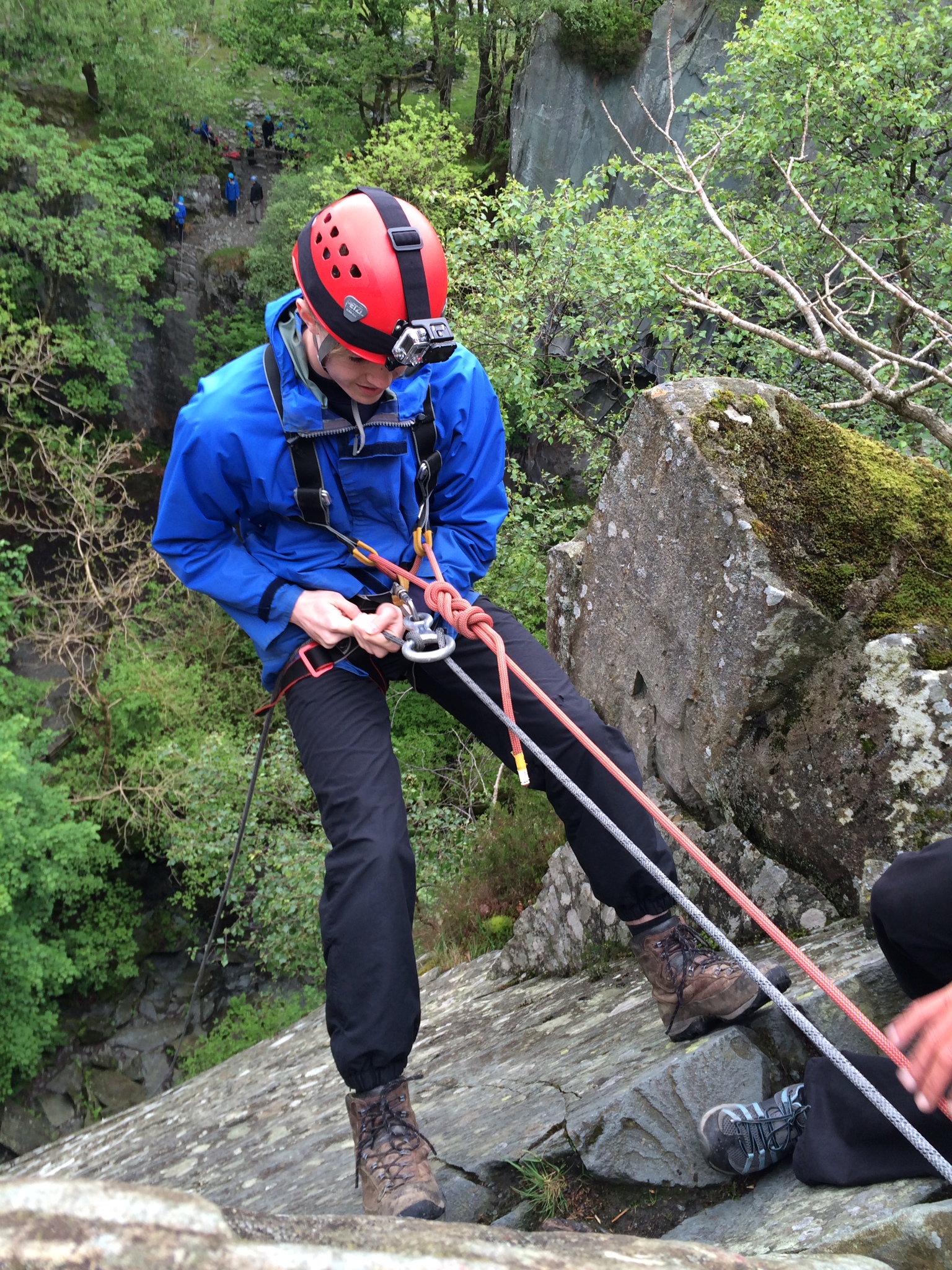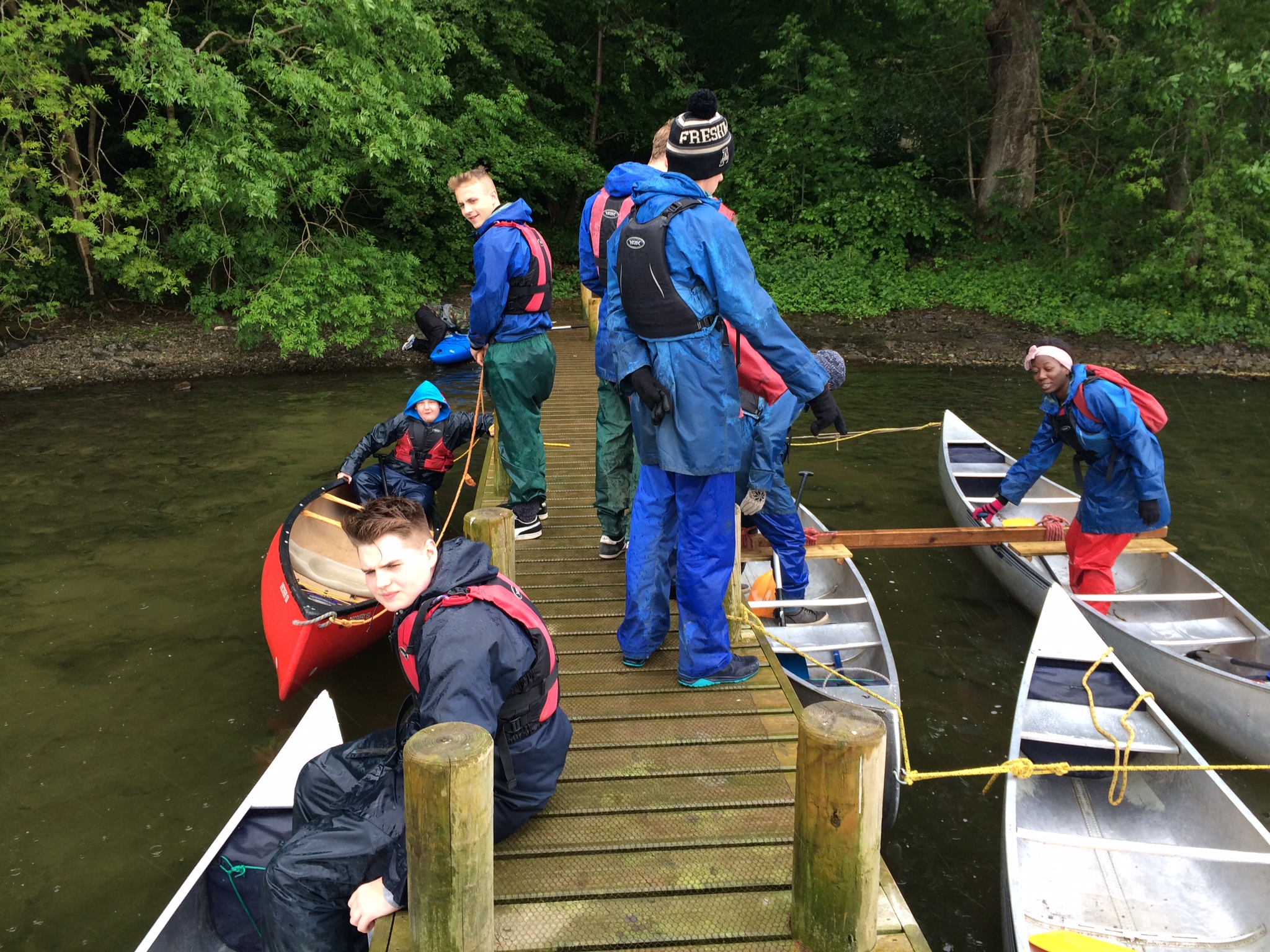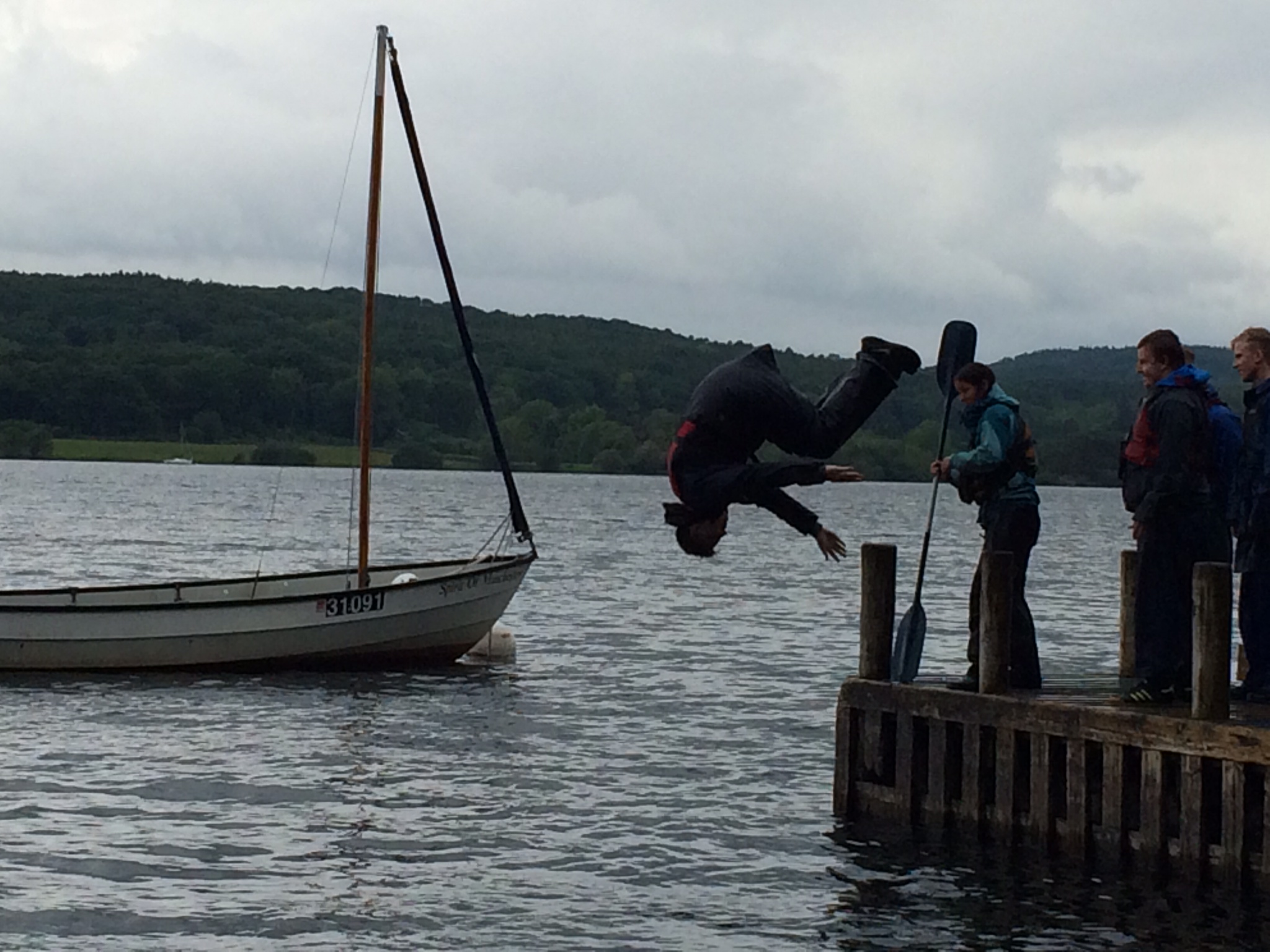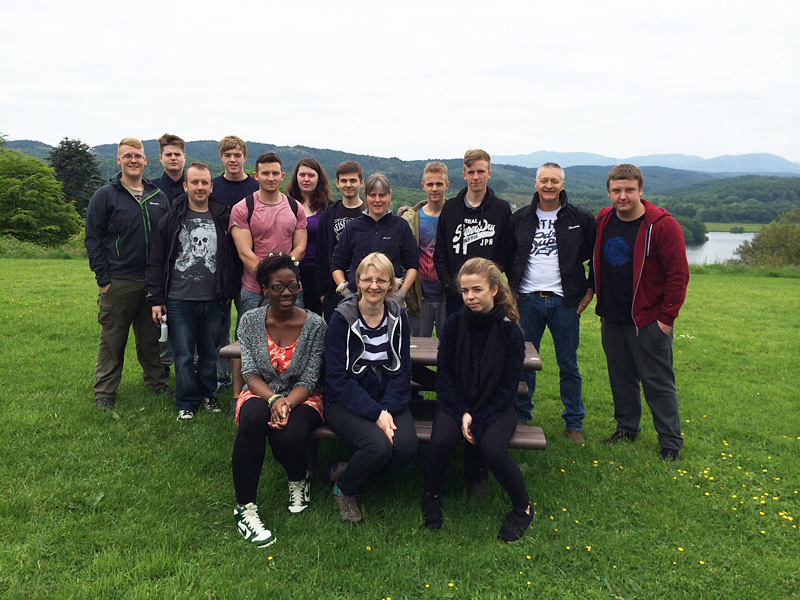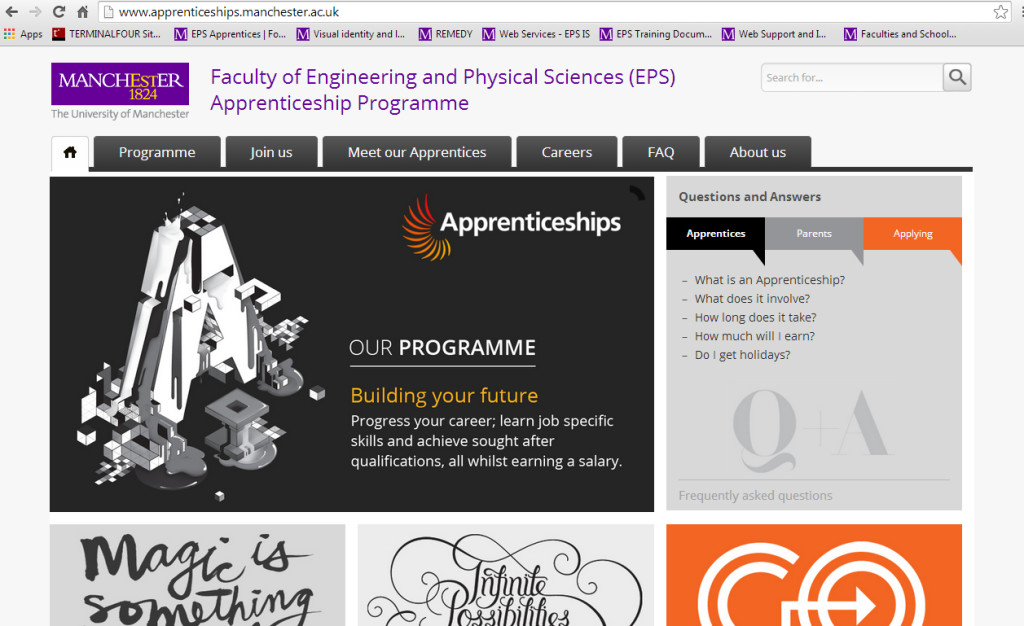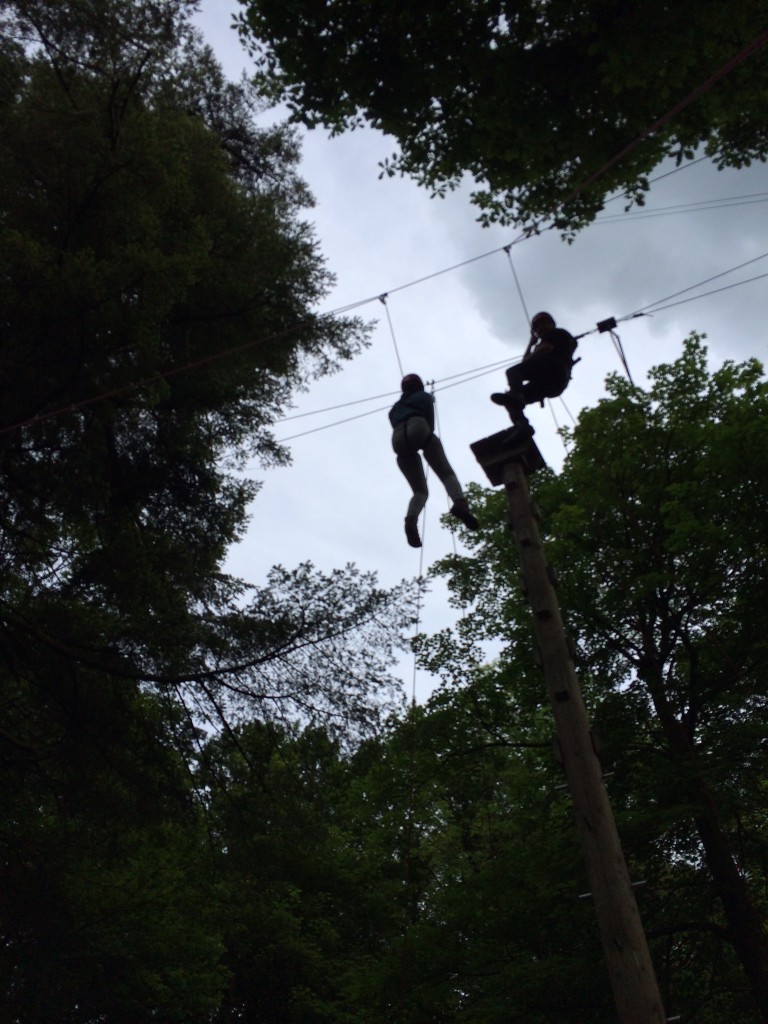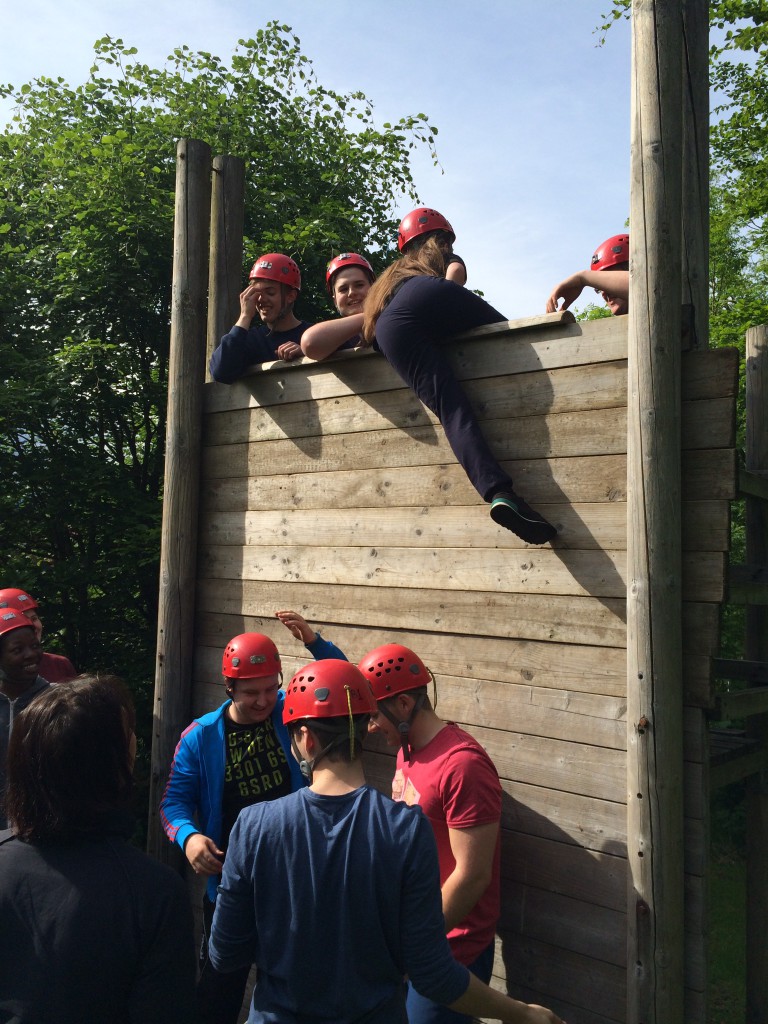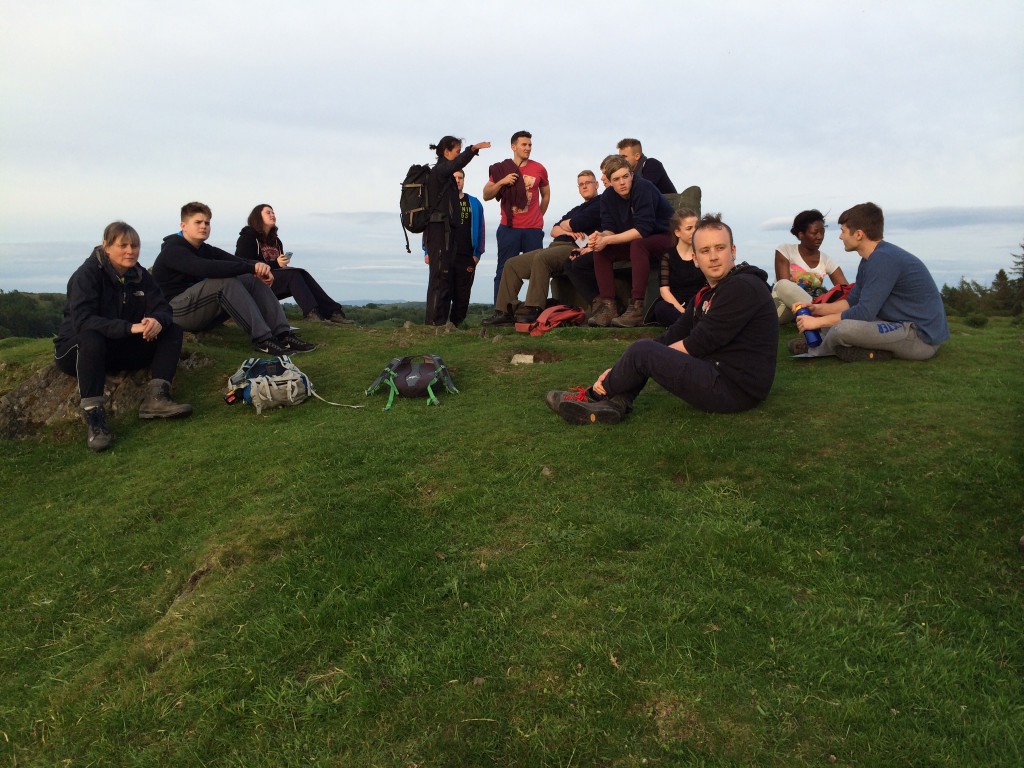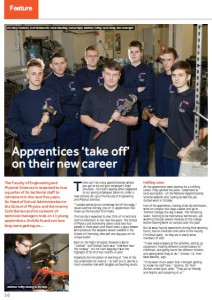Our last full day at Ghyll Head kicked off with a trip up to a rather daunting rock face, followed by a camera crew. The camera crew were with us throughout the day, capturing the activities we took part in, so that footage of the day can be used in a video about the apprenticeship scheme.
Our abseil down the rock climbing wall the day before came in handy, when we were faced with the challenge of abseiling down about twenty five meters of rock, followed by a further twenty five metres of abseiling without anything to brace our feet on before we reached the ground. Attached to safety ropes, we took it in turns to try and avoid the temptation of looking down while we descended! Liam even wore a camera on his helmet, to capture the experience from a first person perspective.
The abseil was much more nerve-wracking than getting down the climbing wall the day before had been, the worst part being at the very top, where you have to convince yourselves to lean back over the edge of what would be a very long fall, and trust that your ropes won’t let that happen! Another contender for the scariest part of the abseil was the moment were the rock face ended, and you had to step off the wall, and continue to lower yourself to the ground with nothing to brace your feet on.
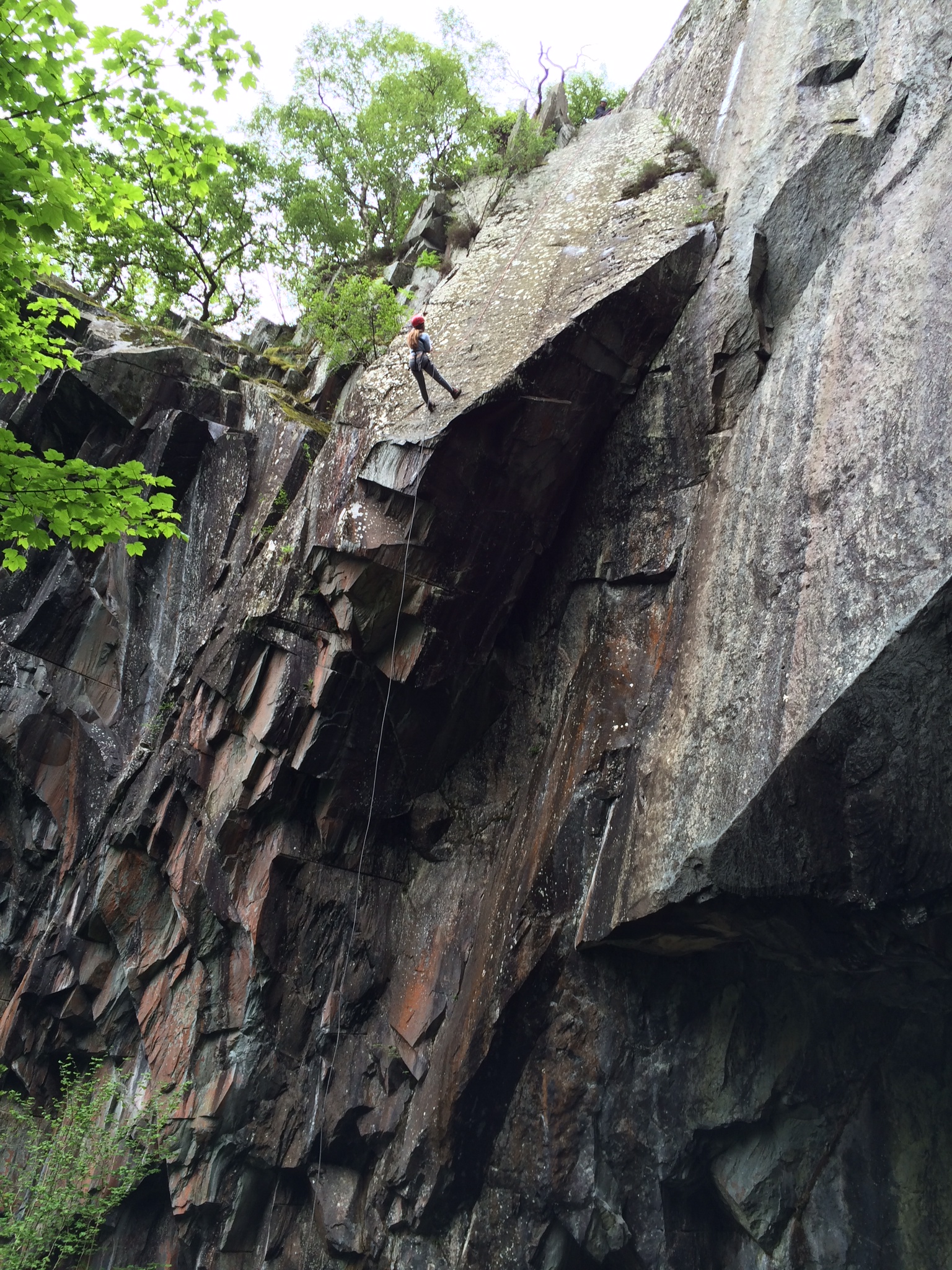
Once we reached the bottom, we were faced with a short journey through dark tunnels in order to get back to the path that would lead us back up to where the rest of the group were, awaiting their turn. We did have to keep our fingers crossed we’d chosen the right direction through the tunnel however, so that we didn’t have to turn back and try again, as one of the paths lead to a locked gate that we wouldn’t be able to get past.
In the afternoon, we put all the team building we’d done over the past few days to good use when we went Ghyll Scrambling. A ghyll is another name for a stream, hence the name of the place we were staying, which was located at the head of a stream, ‘Ghyll Head’. We helped each other to climb through a rocky stream, and even up some small waterfalls, trusting each other to not let us slip on the rocks, or get knocked over by the current of the freezing cold water.
By the time we’d finished, wearing waterproof clothing seemed to have been pointless as most people were soaked after walking underneath one of the waterfalls, as well as falling back (voluntarily!) into a pool of water. Simbiat once again showed amazing determination and fell backwards into the water despite being unable to swim. The last challenge we faced, before getting warm and dry and heading back for tea, was jumping into another pool of water. Similarly to the Jetty Jump, the water we jumped into was freezing, and a few people waited next to the pool to help people get back out once they’d jumped.
By this point in the week everyone was exhausted, and after we’d got back and eaten, most people ended up spending the evening sleeping! We did all manage to find time to pack however, as we were leaving at lunchtime the next day, meaning we only had one activity left at Ghyll head. I’ll talk about that next time, along with answering some questions that have been asked about whether team building activities such as our week at Ghyll head are useful, and a good idea for the future (although you might be able to tell already where most of the apprentices stand on that topic!)
